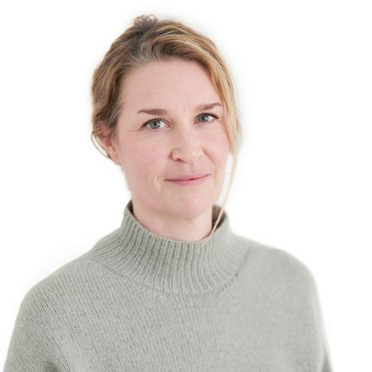
Ida Al Fakir
Senior lecturer
Email: ida.alfakir@gih.se
Phone: +46 8-120 53 880
Visiting address: Lidingövägen 1
Belongs to: Department of Movement, Culture and Society, Section for Educational Science
Interests
Read more about my interests in teaching, research and collaboration.
I mainly teach in the educational sciences of teacher education and supervise thesis work at the undergraduate and graduate levels. I am also co-supervisor of a PhD student in the graduate school SMOVE, Sustainable Daily Movement in Preschools and Schools.
My research interests include the history of 20th century Swedish welfare and public health, with a particular focus on knowledge production and practices concerning minorities. I draw theoretical and methodological inspiration from the broad fields of history of science and technology (STS) and the history of knowledge.
My research projects have mostly been in the borderlands between the history of medicine and the history of the welfare state, as well as minority and migration studies. Specifically, I have investigated how Roma have been mapped and dealt with by various actors such as priests, doctors and social scientists.
My dissertation investigates a socio-medical study of Swedish Roma conducted in the 1960s. This so-called Gypsy Survey was funded by the Swedish Labour Market Board and carried out by social medical, epidemiological, genetic, ethnographic, developmental psychology and educational officials and researchers from Uppsala and Stockholm, with the assistance of social welfare workers and medical students. The practical leader was the social physician John Takman.
The purpose of the survey was to gather data for inclusive interventions in school, education and work. The researchers, on the other hand, also had scientific ambitions, which contributed to the expansion of the study over both time and place. I analyse this from the perspective of citizenship theory and the history of science, which leads me to the conclusion that the Gypsy study mainly contributed to establishing researchers as good citizens, rather than promoting the social citizenship of Roma.
I have also examined the Church of Sweden's attitude towards Roma and Travellers, as well as how the church's leading layers worked with social and ethnic minorities during the first half of the 20th century.
My current project "Classifying the unclassifiable. Ethnicity in Swedish Registers and Epidemiological Knowledge Production, 1950-2020" is funded by the Swedish Research Council 2022-2025. In this, I explore how Swedish epidemiological research has dealt with ethnic differences from 1950 to 2020. Epidemiological studies are often based on health and population registers that collect information at the individual level, but only such data that is deemed ethically defensible. After the 1945 population survey, ethnicity ceased to be registered in Swedish statistics, and in 1973 it became illegal. Epidemiologists have therefore had to develop alternative methods to investigate the health status of ethnic minorities in Sweden. The aim of the project is to investigate the practices of classification, categorization and epidemiological knowledge production that developed when ethnicity ceased to be a viable category after World War II. The project focuses on two levels: the data collection level (which research questions, collection strategies, methods and concepts have been used, which disciplines have been involved), and the level of analysis (selected key variables and factors and how they have been linked to each other).
I am also a participant in the research group Research in Education & Movement Culture, which is an interdisciplinary research group that conducts research in the humanities and social sciences on movement, culture and society.
I collaborate primarily for educational and inclusive purposes with, among others, the Living History Forum, SVT, UR, IHRA
Latest publications
- Article
Guarding the boundaries of belonging: the Church of Sweden, Gypsy mission and social care in the 1910s–40s
2024- Ida Al Fakir
- Book Review
Simon Sorgenfrei, ”De kommer att vara annorlunda svenskar”: Berättelsen om Sveriges första muslimer
2023- Ida Al Fakir
- Chapter
Spotlighted or Hidden in Plain Sight
2023- Ida Al Fakir
Showing 1 - 3 of 15
Information
Academic title
PhD in History

